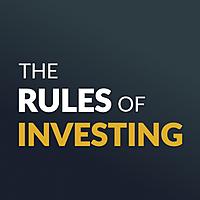“We’re buying”: Emma Fisher spots a rare chance to upgrade the portfolio
Note: This podcast was recorded on the 9th of April 2025
Monday the 7th of April 2025 is a day few Aussie investors will forget, as the ASX 200 opened more than 6% lower on fears of escalating trade wars. The drop followed a sharp fall on US markets, capping what was the worst two-day period since March 2020.
The moves took US stocks into bear market territory, leaving investors asking the question: “How low can this go?”
For Emma Fisher, Deputy Head of Equities at Airlie Funds Management, it was a phone call from her mum that delivered a ‘soft signal’ that the worst of the selling may be behind us.
“When you’ve got family members that know you work in markets and they’re getting worried about your mental health, that’s maybe a sign that things have moved too fast and too hard.”
Fisher, a self-confessed optimist, has been making the case for some time that equities were expensive and susceptible to a drawdown. Earnings and dividends on the ASX have been flat for the past two years, with equity returns driven largely by multiple expansion - often used as a proxy for investor exuberance.

Sell-offs and volatility are part of the journey when investing in equities. We’d all love a smooth ride while compounding +9% annual returns — but that’s not reality. What is true, however, is that if you zoom out and take a long-term perspective, these blips have always faded into obscurity.
Fisher argues there’s no signal in the extreme volatility — it’s simply a symptom of today’s market structure and participants. Her take is that we should expect drawdowns to be short, sharp, and highly volatile.
No tariff experts at Airlie
Just about everyone has a theory on President Trump’s tariff policies and the potential implications for everything from inflation to growth forecasts. It’s almost irresistible not to get drawn in.
“There’s a great saying: In bull markets, everyone becomes a long-term investor; in bear markets, everyone becomes a macro economist.”
Fisher argues that predicting the flow-on effects of tariffs is near impossible given the complexity of the global economy. Worse still, it can distract from what really matters.
“We saw it in COVID. A lot of people focused on ‘hey, I’m going to figure out where the virus is going next and become an expert in virology.’”
Fisher believes those investors potentially missed the real story: just how cheap businesses became during that sell-off - and how cheap money got.
Her advice? Resist the urge to become a tariff expert. The world is complex, and isolating one variable is incredibly difficult.
Instead, she’s focused on making the most of this once-in-five-year opportunity to high-grade the Airlie portfolio by buying great companies at great prices.
Two buckets brimming with opportunity
The team at Airlie has identified two distinct areas of opportunity in the Australian market.
Ironically, one of them is Australian companies with US earnings. These businesses have been some of the market’s best performers - and some of the hardest hit. But Fisher argues it would be a mistake to ignore the innovation and growth mindset that define the US economy.
“That entrepreneurial force in the US is something you don’t want to bet against in the long term.”
She’s been adding to Aristocrat (ASX:ALL) and ResMed (ASX:RMD) — two stocks that meet Airlie’s criteria of strong balance sheets, high returns, and quality management, and which have dipped into value territory.
“ResMed in the next couple of months is going to be net cash. They have very little capex and they throw off huge amounts of cash.”
“What do you know for sure long term? There’s going to be a lot of people with sleep apnea, and a lot of them are going to need CPAP devices.”
The second area of opportunity? Businesses exposed to the Australian consumer. It’s been a tough few years on the home front, with cost-of-living pressures hitting discretionary spending hard.
But the RBA’s February rate cut suggests there may finally be some light at the end of the tunnel, and markets are pricing in a further 100 basis points of cuts between now and December 2025.
Fisher also believes that disrupted trade relations with the US could see more products making their way to Australian shores. Her pick here is JB Hi-Fi (ASX:JBH), which has been added to the Airlie portfolio for the first time ever.
No cash? Funding new ideas in a sell-down
As a direct investor, you might have some cash on the sidelines. If you’re running a multi-asset portfolio, maybe you’ve got some bonds or gold to draw on.
But professional equity managers tend to be fully, or close to fully, invested - which means there’s often less cash available to deploy during a sell-off. So where do you find funds?
Fisher says the most resilient stocks in a downturn become her source of funding for new ideas.
“We get a million emails from brokers telling us what to buy in a downturn. It’s things like Woolworths - it’s all the defensive names.”
“That’s your list of funding stocks - ironically, because they’re sending it around as a buy list, but in my mind, that’s your list of funding stocks.”
These moves aren’t about trying to pick the bottom. They’re slow, methodical tilts toward the most attractive opportunities.
A stock for the next five years
Fisher’s last appearance on The Rules of Investing was in October 2023. Her long-term pick? ResMed - when shares were trading at around $22.
This time, she tips Sigma Pharmaceuticals (ASX:SIG), the new owner of Chemist Warehouse. Sigma trades on a lofty one-year forward PE of 53x, with the share price up 130% over the past year.
But it’s the longer-term view that matters to Fisher. Her expectation is that Chemist Warehouse will nearly double its store count in Australia — to somewhere between 900 and 1,000 stores.
The disruptive ‘big box’ format has also gained traction in New Zealand and Ireland, adding to the company’s growth runway.
“Our analyst just went to Ireland and spent some time with the CEO of the Irish business and visited the stores. It’s the exact same playbook as Australia.”
“It really is a different model. It’s one we’ve seen become incredibly successful in Australia. It’s created a lot of wealth for shareholders - and now we get the chance to be shareholders too.”

9 stocks mentioned
1 fund mentioned
1 contributor mentioned


